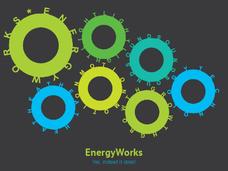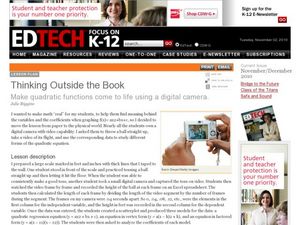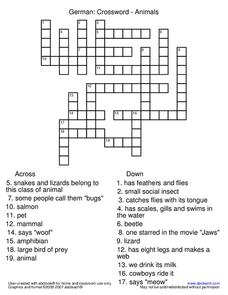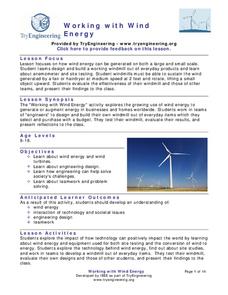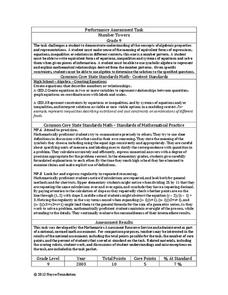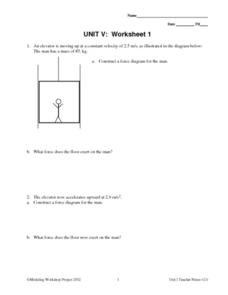National Energy Education Development Project
Energy Works: Yes, Indeed it Does!
Moving from its definition to how it moves and its different types, scholars see different examples and then move into its application and use in everyday lives, in an energy-based presentation.
Curated OER
Thinking Outside the Box
Now this lesson sounds fun! High schoolers throw a ball, film it as it soars through the air, and use a spreadsheet to collect data. A scatterplot is created to produce a quadratic regression equation, an equation in vertex form, and an...
Curated OER
Plant Life Cycles
Follow the life cycle of a dandelion with a lab sheet for kindergartners. They learn about the order of events in a dandelion's life, then put the stages of life in order. Can they describe the life cycle of a pumpkin? For extra...
Illustrative Mathematics
Christo’s Building
Hook your charges on how to solve a real-world art problem with mathematics by showing works of Christo. You can find eye-catching images on the Christo and Jeanne Claude webpage. Here, math learners help Jean Claude and Christo prepare...
TryEngineering
Graphics: Bits and Points
What can a mural teach pupils about computer science? The lesson has scholars create a mural on a wall to learn about bitmap and vector graphics. Along the way, they learn about the graphics coordinate system.
TryEngineering
Nano Waterproofing
Does your shirt hate water? In the activity, future engineers observe the hydrophobic effect in fabrics. They brainstorm and test some ideas for waterproofing fabrics.
Curated OER
Residential Power System
Perform data analysis on energy consumption to apply algebraic expressions to the real world. Learners will write and solve equations that answer various questions from residential power use. They will collect data at home and calculate...
abcteach
German Vocabulary Crossword Puzzles
What animals says meow, and which creature has eight legs? Test your German language learners' knowledge of animals with a quick crossword puzzle. Also included are eleven additional crossword puzzles with topics that range from food to...
Institute of Electrical and Electronics Engineers
Working with Wind Energy
After reading about how wind turbines work to collect clean energy, groups brainstorm and design their own windmill. Within the provided financial and physical constraints, groups must build a working windmill using only the materials...
Student Handouts
What's My GPA?
Here is an excellent, detailed one-page reference sheet to introduce students to what a grade point average (GPA) is and how to calculate their own.
Institute of Electrical and Electronics Engineers
Working with Wind Energy
Teams design and build a windmill, under budget, that can lift an object. The groups evaluate and reflect on their own design, then on those produced by other teams. The goal is to determine which design is the most...
EngageNY
Trigonometry and Complex Numbers
Complex numbers were first represented on the complex plane, now they are being represented using sine and cosine. Introduce the class to the polar form of a complex number with the 13th part of a 32-part series that defines the...
Inside Mathematics
Number Towers
Number towers use addition or multiplication to ensure each level is equal. While this is common in factoring, it is often not used with algebraic equations. Solving these six questions relies on problem solving skills and being able to...
Curated OER
Find Parabolas through Two Points
Your learners will write quadratic functions whose graphs include specific points and explore how these graphs are related to each other.
Curated OER
Butterflies
For this science and reading comprehension worksheet, students read a 1 page detailed passage about butterflies. Students then answer 7 questions.
Curated OER
Budget Bonanza
Students demonstrate how to use a budget plan. In this consumer math lesson, students calculate the total cost of data and determine if they are within budget. Students use calculators to determine the total cost. There is a rubric...
Curated OER
Unit V: Worksheet 1 - Constant Force
In a force diagram, a stick figure man in an elevator takes a ride. Physics analysts work out the force exerted on him by the elevator floor. As the acceleration changes, they draw new force diagrams and compute new force values. This...
Houghton Mifflin Harcourt
Unit 5 Math Vocabulary Cards (Grade 4)
A set of 49 cards can enhance fourth graders' math vocabulary. It provides a pair of cards on each sheet, one with the word printed in bold text, and the other with the definition of the word. Topics of the cards include mostly...
Curated OER
Jazz In America
Students gain a fundamental understanding of the role of jazz in the Harlem Renaissance. They explain its historical significance and cultural implications.
Texas State University
Earth: Deposition and Lithification
Geology geniuses analyze sediment samples with a hand lens and sort according to physical characteristics. They also learn about the processes of cementation, compaction, and lithification within the rock cycle. The lesson plan is...
Curated OER
What are Metamorphic Rocks and How are They Formed?
Even though the student handouts are not included in the write-up, this lesson contains the instructions for terrific activities to use when teaching middle schoolers about metamorphic rocks. First, they compare granite to gneiss and...
Curated OER
Fun with Fictitious Animals
How can one differentiate between a dweezlebub and nessie? Use this fictitious creature dichotomous key to find out! Biologists of all ages will enjoy this creative way to learn about classification, including a chance to draw the...
Institute of Electrical and Electronics Engineers
Be a Scanning Probe Microscope
Extensive reading is done in order to learn about scanning probe microscopy and nanoscale. Afterward, individuals use a pencil to probe an unidentified object that is inside of a box so that they cannot see it. Using only what they could...
Curated OER
Building a General Quadratic Function
Learners rewrite a general quadratic function by completing the square to see a new form of the function that more easily identifies the x-coordinate of the vertex and the two roots of the function.
